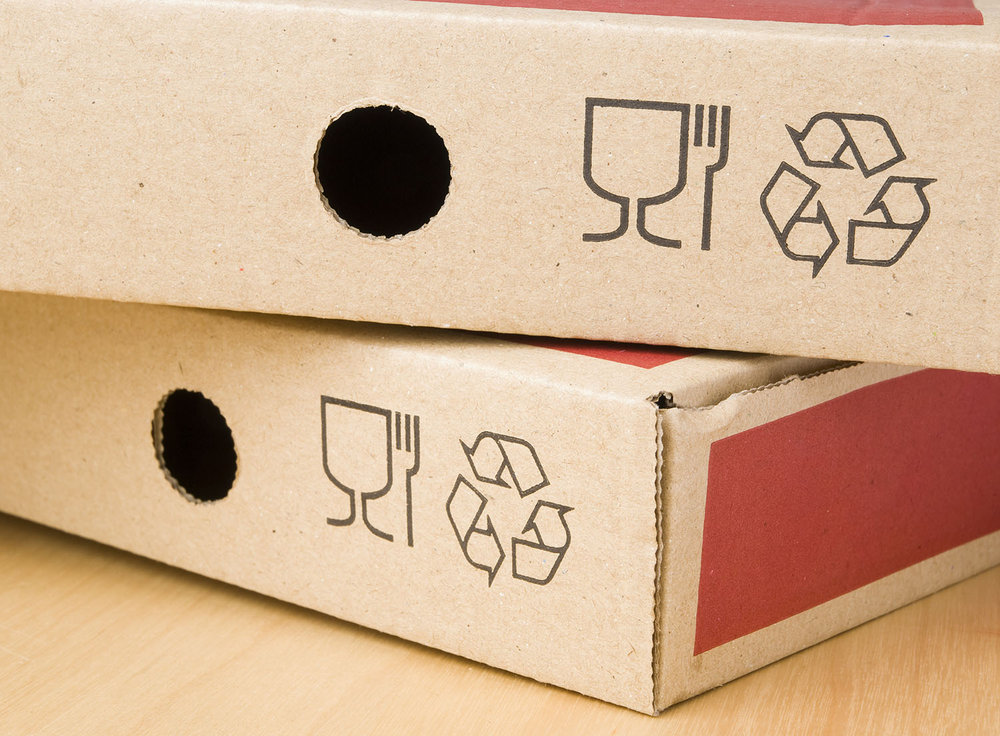Physical Address
304 North Cardinal St.
Dorchester Center, MA 02124
Physical Address
304 North Cardinal St.
Dorchester Center, MA 02124

Pizza has long been a beloved comfort food for people all around the world. However, with the rising awareness of environmental issues, the question arises: are pizza boxes compostable? In this comprehensive guide, we will delve into the details of pizza box materials, their compostability, and the best practices for eco-friendly disposal.
To determine whether pizza boxes are compostable, it’s essential to understand the materials commonly used in their construction.
The majority of pizza boxes are made from corrugated cardboard, a type of paperboard material known for its sturdiness and insulating properties. Cardboard is typically composed of layers of paper and a corrugated or wavy inner layer, making it an ideal choice for keeping pizzas hot and preventing them from becoming soggy during transport.
In addition to the cardboard itself, pizza boxes often feature printed graphics, logos, and nutritional information. These prints are created using inks and may involve adhesives to attach additional materials like coupons. Understanding the impact of these additives is crucial when determining compostability.
Now, let’s address the main question: are pizza boxes compostable? The answer isn’t a simple “yes” or “no.” It depends on various factors.
For a pizza box to be compostable, it must be free of any non-organic contaminants. This means that the box should not have traces of grease, cheese, or any other food residue.
As mentioned earlier, pizza boxes often have printed inks and adhesive elements. The inks should be soy-based or water-based, which are more environmentally friendly and break down in composting processes. Additionally, adhesives should be water-soluble or easily detachable.
Some pizza boxes feature perforations or uncoated areas for easy tearing. These aspects are generally favorable for composting, as they allow for better decomposition.
Look for certification labels like “Certified Compostable” or “Biodegradable” on pizza boxes. These labels signify that the packaging meets certain industry standards and is designed for composting.
While pizza boxes can be compostable under the right conditions, there are still challenges to consider.
The biggest obstacle to composting pizza boxes is grease. When a pizza box is heavily contaminated with oil and food residue, it can introduce toxins and pathogens into the compost pile, rendering it unsuitable for composting.
In some regions, the infrastructure for sorting and collecting compostable materials, including pizza boxes, may not be readily available. It’s essential to ensure that your local waste management system accepts pizza boxes in compost bins.
Many people are unaware of the intricacies of composting, leading to the incorrect disposal of pizza boxes in regular recycling or trash bins. Public education plays a significant role in addressing this issue.
To make pizza box composting effective, follow these best practices:
Before placing a pizza box in the compost, ensure it’s free from food residues. Tear off any greasy or heavily soiled portions.
Cut or tear the pizza box into smaller pieces to expedite the decomposition process.
Verify your local composting regulations and guidelines. Some regions may not accept pizza boxes due to the grease issue, while others have no such restrictions.
Whenever possible, choose pizza boxes with compostable certification labels. These boxes are designed with environmentally friendly materials that are more likely to be accepted by composting facilities.
Spread awareness about proper pizza box disposal. Share information about the importance of composting and the difference it can make in reducing waste.
As the world continues to grapple with environmental issues, the future of pizza box composting looks promising. Innovations in materials and printing technologies are making it easier to produce pizza boxes that are both functional and eco-friendly. Additionally, composting infrastructure is being improved in many places, allowing for the more extensive acceptance of pizza boxes and other compostable materials.
So, are pizza boxes compostable? The answer is a qualified yes. Pizza boxes can be composted, provided they are clean, free from excessive grease, and have compostable inks and adhesives. The compostability of pizza boxes depends on the specific conditions and regulations in your area. By adhering to best practices and educating yourself and others about proper pizza box disposal, you can contribute to a greener and more sustainable future. Remember, even small changes in our daily habits can have a significant impact on the environment, one pizza box at a time.